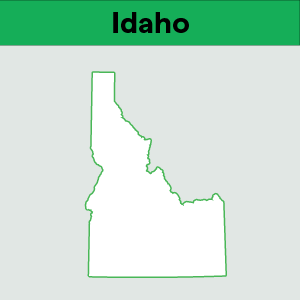Trailing nexus: what sellers should know
by January 4, 2024
Please note: This blog was originally published in 2018. It’s since been updated for accuracy and comprehensiveness.
Remote sellers who have sales tax nexus in a state and who also sell taxable products or services in that state are responsible for collecting and remitting sales tax (or vendor use tax) on any taxable sales that occur in the state.
Failing to collect and file sales tax creates a potential tax liability for the company in that state. This potential liability can quickly become an actual liability if the company is audited by the state and an assessment is made for the past due taxes. Generally, there is no statute of limitation for past due taxes if returns have not been filed.
Your nexus can change through the years
But, as remote sellers evolve, their “nexus footprint” may also change. For example, if you sell on FBA, you may have noticed that as new states open up Amazon Fulfillment Centers, your goods are moved. Or perhaps you change your business up. Perhaps you had nexus in many states, but stopped selling on FBA in favor of opening your own online store, and now you only have sales tax nexus in your home state of Pennsylvania.
There are many reasons nexus may be created in new states and nexus may be eliminated in other states. For companies that have nexus in a particular state and also collect and remit sales tax in that states, the question is often asked “How long do we need to collect and remit sales tax after we stop having nexus in the state?” This question gets to the point of what is commonly referred to as “trailing” or “residual” nexus.
What is “trailing nexus” and what do online sellers need to know about It
Over the years, I’ve had many clients attempt to cancel their tax registration the month after they stop having nexus in a particular state. Their reasoning is that “Why should we continue to collect tax if we don’t have nexus?” This process has met with mixed results depending on the state.
The state of Washington is one of the few states that has a specific policy on trailing nexus. That policy states: “A person who stops the business activity that created nexus in Washington now continues to have nexus for the remainder of that calendar year, plus one additional calendar year.”
Trailing nexus recognizes the reality that many nexus creating activities have a residual effect on the ability of your business to make sales in the state and to create an economic presence in the state. For example, if nexus is created by your company having a salesperson meet with prospective customers and solicit sales in the state, the sales generated by that salesperson do not stop the minute he leaves the state. For some period of time, sales will continue to be generated as a direct result of the work done by the salesperson. The states want sales tax on these residual sales. The state’s argument is “but for the activity of the salesperson, the sale would not have occurred.”
On the other hand, if nexus is created by the presence of property in the state or in some way that is unrelated to the direct solicitation of sales, then a stronger argument could be made that your collection obligation does stop when the nexus activity stops, since the nexus creating activity was unrelated to creation of a market for the products you sold. Many thought leaders in the sales tax world question the constitutionality of states requiring buyers to charge sales tax to customers when they no longer have a physical presence in the state.
Few states have articulated their trailing nexus rules in the way that Washington State has. However, if your business has created nexus through activities that are directly related to generating sales, the existing tax laws of most states are probably sufficient to require your business to continue to collect sales tax for some reasonable period of time after nexus is terminated. What is “reasonable” will vary by state and by business. Even though you may have cancelled your registration, your business is still at risk for an audit even for periods after your cancellation. Once the states have companies registered for sales tax they are loath the allowing them to cancel their registration.
If you are planning on canceling your state registration after your nexus creating activity has stopped, be advised that the states may not agree with your company’s interpretation of that state’s nexus requirements. You may want to contact your state’s department of revenue or consult with a sales tax expert.
What if you had nexus but never registered to collect sales tax
For companies that are not registered for the collection and remittance of sales tax, the issue of trailing nexus is more complicated. Because there is no statute of limitation for periods for which no return has been filed, stopping the nexus creating activities in the current year, does little to mitigate your companies risk during all the years that you did have nexus but did not file returns.
Long story short: if you had nexus in a state, but ceased activities there, you still may be on the hook for a sales tax audit and major penalties if you get caught out. Even years later.
Careful analysis must be given to the risks involved with nexus creation and the need to continue to file sales and use tax returns.
States with “trailing nexus”
As I mentioned above, while many states could attempt to establish a precedent for trailing nexus, only a handful of states have explicitly stated trailing nexus provisions. They are:
California – Trailing nexus generally consists of the quarter the retailer stopped doing business in the state and the quarter that follows.
Michigan – Michigan’s trailing nexus provision says that once nexus is established by a seller for use tax collection purposes, shall exist for that seller from the date of contact forward for the remainder of that month and for the following 11 months.
Minnesota – Sellers are considered to have sales tax nexus in Minnesota if they conduct business activity in the state for four days in the calendar year. “The out-of-state business is required to register, collect and remit Minnesota sales or use tax on sales made from outside Minnesota to destinations in Minnesota starting on the fourth day of such activity and for all sales made that day through the following 11 calendar months.”
Texas – According to the Texas Comptroller, an out-of-state seller that has been in Texas to continue should collect state sales and use tax for 12 months after ceasing to do business in Texas.
Washington – Washington’s trailing nexus provision says that “A person who stops the business activity that created nexus in Washington now continues to have nexus for the remainder of that calendar year, plus one additional calendar year.”
On the other hand, New York and Illinois have both made rulings that if a retailer removes all physical presence from the state then they no longer have nexus.
Automation can help
Sales tax compliance can be trick to navigate, that’s why we built TaxJar. Our sales tax platform will help you track your nexus requirements and ensure you continue to collect and remit sales tax in states where you have nexus. And with TaxJar’s AutoFile, our platform can prepare and file an accurate return along with your remittance. Get started with TaxJar with a free 30-day trial.








